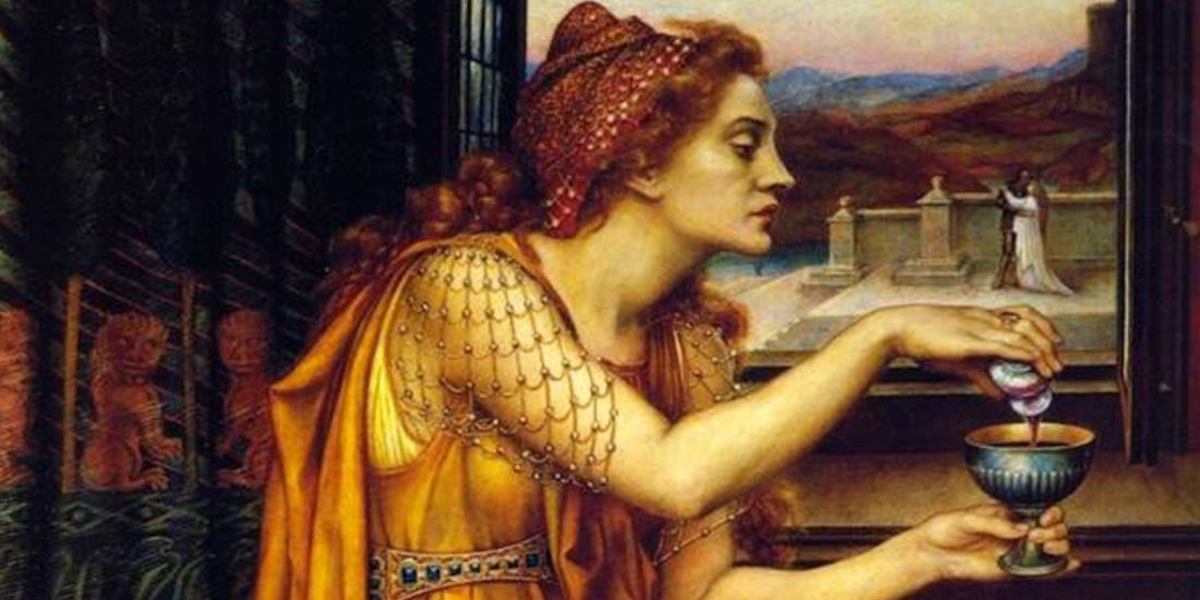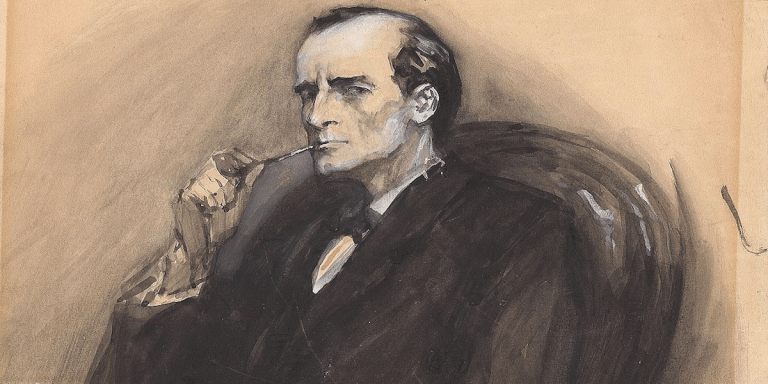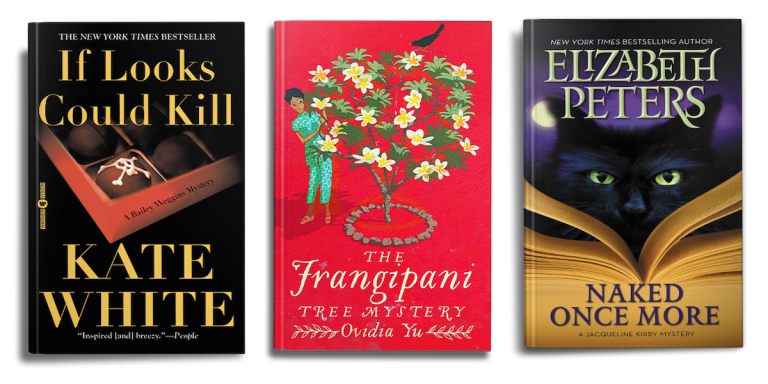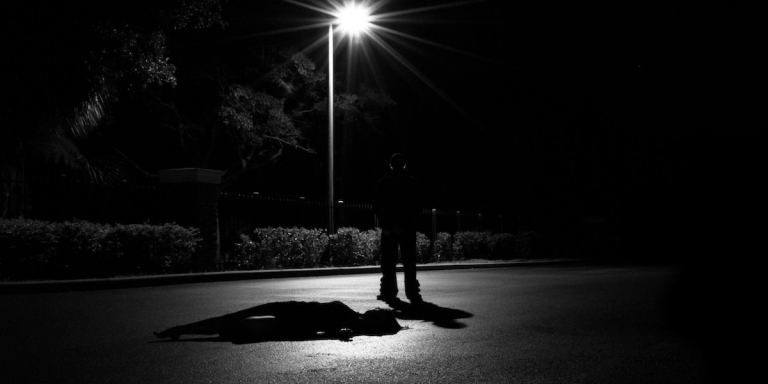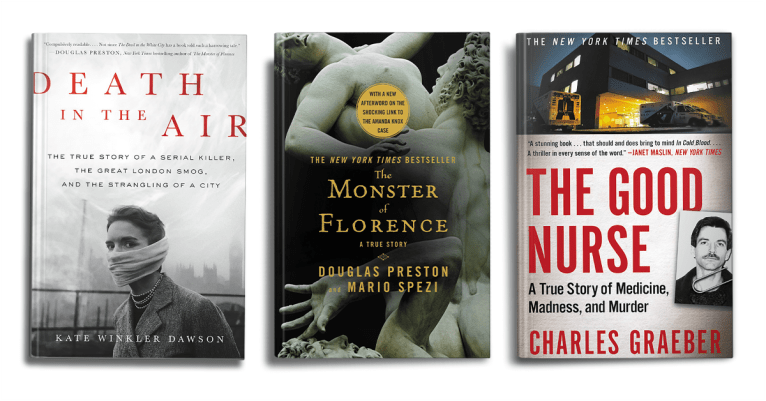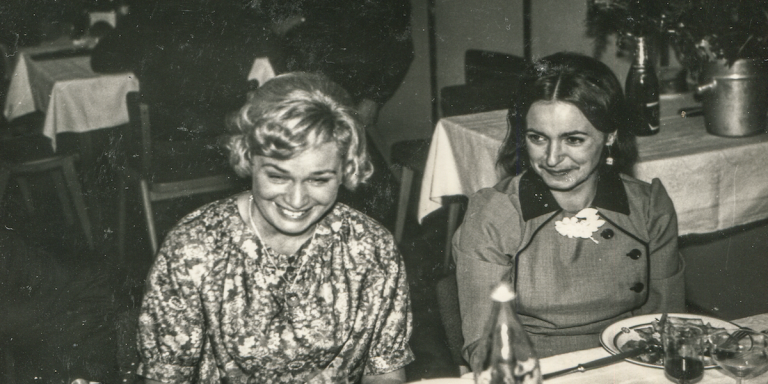Meet the Woman Who Killed Over 600 Men
The Most Successful Serial Killer Was a Woman from Italy
I’ll Be Gone in the Dark. My Favorite Murder. Serial. Bad Blood. These are just a few recent examples of popular media in our true crime-obsessed culture in the 21st century. There are almost as many crime stories as there are podcasts and television shows to cover them, and true crime reads often dominate the nonfiction bestseller lists. Fashion, technology, and politics may change over the years, but our fascination with true crime never wanes. From penny dreadfuls and In Cold Blood to Cold Case Files and Mindhunter, humans love learning about true crime. A well-told crime story can be fascinating whether it involves white-collar crime, a bank robbery, or a mass murderer. But still, no true crime stories draw more attention than those about murderers, especially the ones about serial killers. And no serial killer stories are more sought after than those of the rarest kind of murderer: the female serial killer.
It is a fact that women commit murder, especially serial murder, much less frequently than men. To this day, there have only been a handful of female serial killers mentioned throughout history. There was the Countess Elizabeth Báthory, a Hungarian noblewoman who allegedly murdered hundreds of young women and bathed in their blood to maintain her youthful looks (but more frequently now, her story is believed instead to be a smear campaign waged by the men in her town in order to claim her land and assets); Belle Gunness, a Norwegian-American woman who used the personal ads to lure more than 40 potential suitors to her farm, where she dispensed of them and stole their belongings; Juana Barraza, a Mexican former professional wrestler who murdered almost four dozen elderly women so she could rob them of their possessions; and Jane Toppan, a Massachusetts nurse who confessed to poisoning 31 of her patients and acquaintances, and is often referred to as “America’s first female serial killer.” But no female serial killer is said to be more prolific, and no story more fascinating, than that of Italy’s infamous 17th-century poisoner, Giulia Tofana.
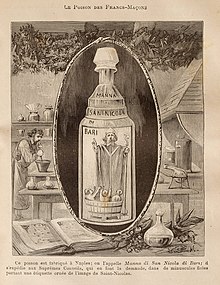 Not much is actually known about Tofana, but what little information we do have is so fascinating that she makes an appearance in all the major crime books about serial killers. She was born in 1620 in Palermo and at some point when she was young, her mother was executed for poisoning her father. Tofana spent a lot of her free time with apothecaries, or as we call them in America now, pharmacists. It is here she learned all about different kinds of medicines and potions—and poisons. Some historians say it was around this time that Tofana developed her own brand of poison; others say she learned it from a recipe left behind by her mother. Either way, by her early teens, she had a successful product in Aqua Tofana.
Not much is actually known about Tofana, but what little information we do have is so fascinating that she makes an appearance in all the major crime books about serial killers. She was born in 1620 in Palermo and at some point when she was young, her mother was executed for poisoning her father. Tofana spent a lot of her free time with apothecaries, or as we call them in America now, pharmacists. It is here she learned all about different kinds of medicines and potions—and poisons. Some historians say it was around this time that Tofana developed her own brand of poison; others say she learned it from a recipe left behind by her mother. Either way, by her early teens, she had a successful product in Aqua Tofana.
Aqua Tofana might sound like a bottled water they’d sell you at a health spa, but in reality, it’s a slow-acting poison with no color or discernible taste, and its effects are much like arsenic and could be mistaken for other serious illnesses or diseases. One of the unusual things about calling Tofana the most successful serial killer in history is that she herself never actually poisoned anyone. Instead, you could say she supplied the bullets for the gun, but did not pull the trigger: her business was comprised entirely of helping women of lowly stature who were trapped in violent and unhealthy marriages.
Like the aunts in Practical Magic, women would furtively arrive at Tofana’s door to plead their case and purchase Aqua Tofana, and then return home to poison their husbands. If the Aqua Tofana was administered correctly in small doses, their husbands would seem at first to have nothing more than a cold, before a more serious illness took hold of them, and they eventually died. Word of Aqua Tofana spread quickly, and soon Tofana was doing so much business that she moved her business to Rome and hired her daughter and three assistants to help her.
Tofana was the Sara Lee of poison for over a decade before a contrite widow reported her to the local authorities. But so many of the people in Italy believed that what Tofana was doing was a charitable cause that they helped her avoid apprehension, and she was actually granted sanctuary in a church for a short time before the police finally forcibly removed her and dragged her off to jail.
In the end, things ended the same as they did for her mother. Tofana, her daughter, and her three assistants were all executed in 1659, after confessing—under torture—to helping poison more than 600 men. But Tofana’s legend lives on. An unsubstantiated claim persisted for many years that Mozart died from Aqua Tofana poison, and even though that may not be true, she still graces the pages of true crime books being written today about the world’s most prolific serial killers.
By clicking 'Sign Up,' I acknowledge that I have read and agree to Hachette Book Group’s Privacy Policy and Terms of Use
What to Read Next
Liberty Hardy is a Book Riot senior contributing editor, co-host of All the Books, and above all else, a ravenous reader. She resides in Maine with her cats, Millay, Farrokh, and Zevon, who hate to read.
